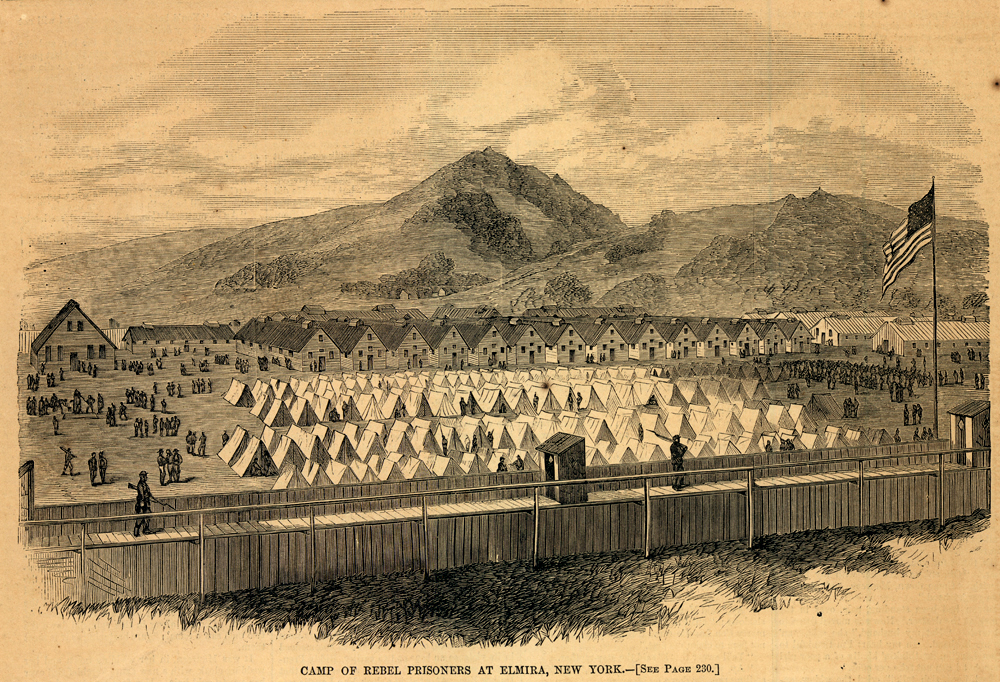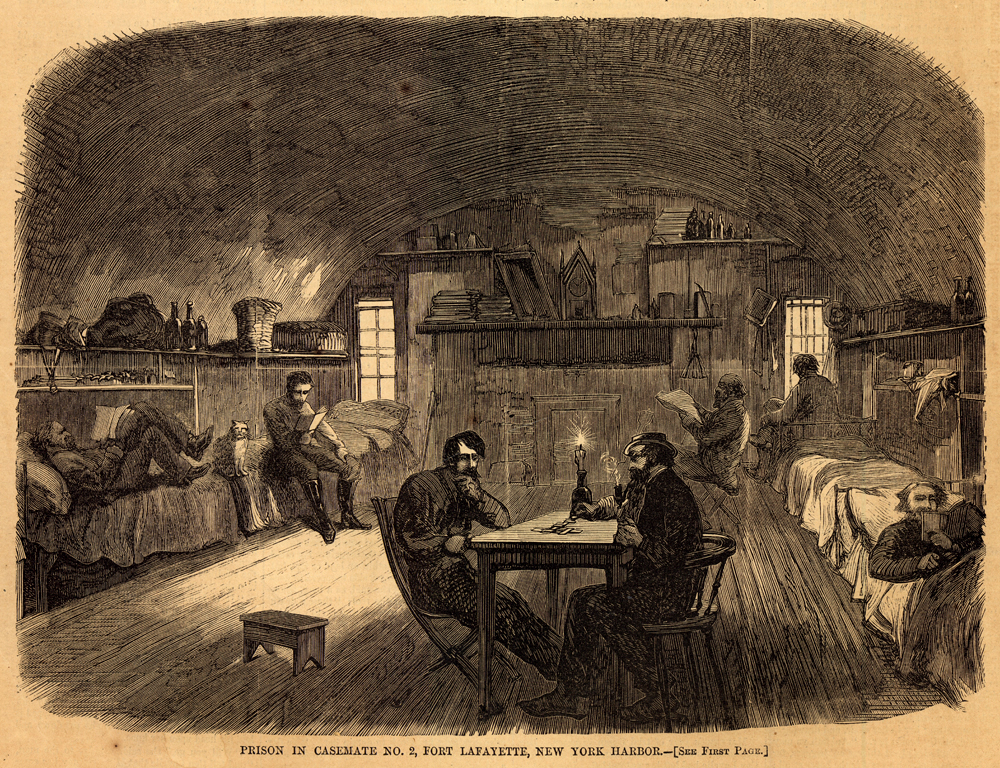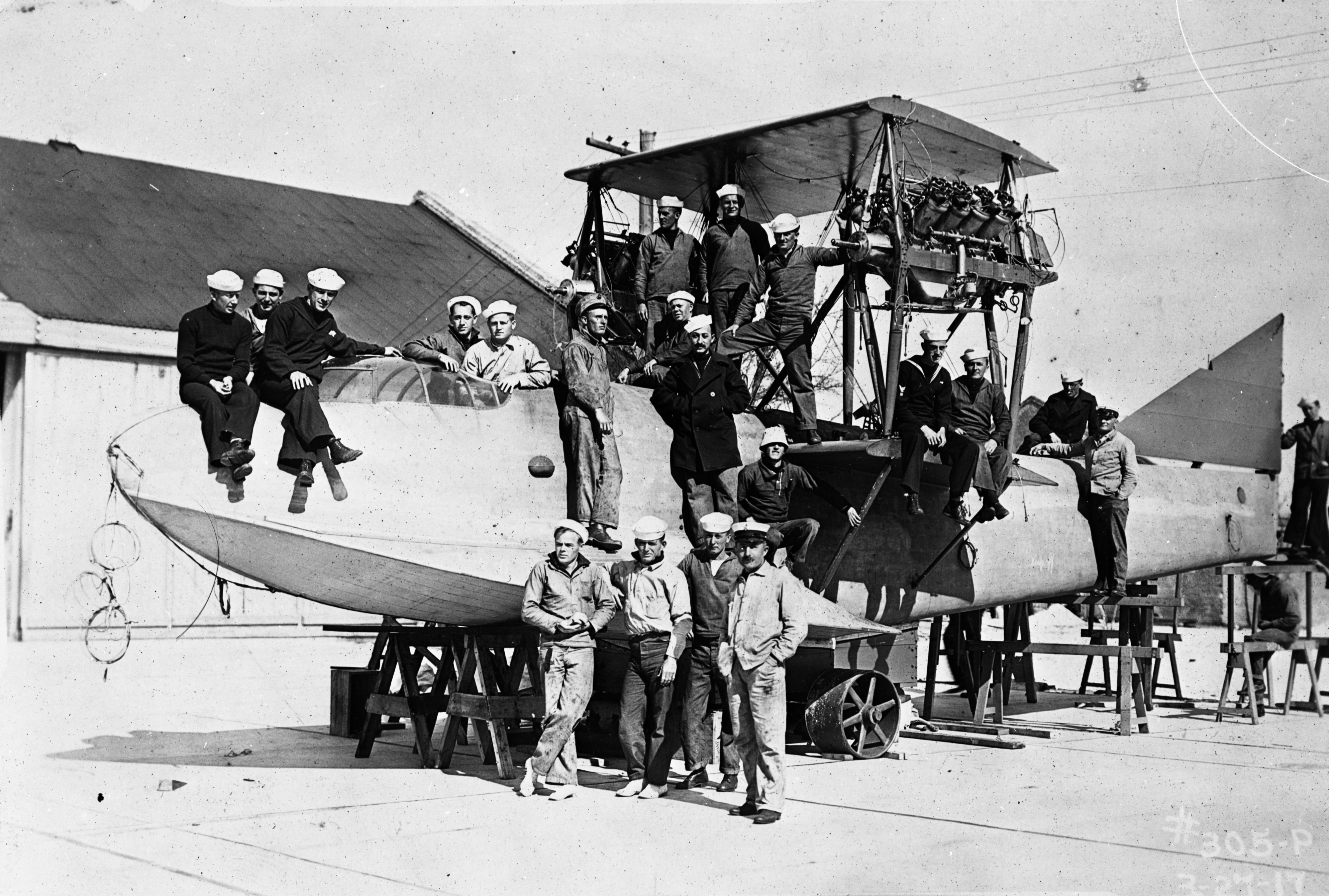Wilbur W. Gramling Civil War Diary
Writings of a Confederate prisoner of war
About This Diary

A page from Gramling's Diary
Wilbur Wightman Gramling was a Confederate soldier who fought with Company K of the 5th Florida Infantry during the Civil War. On May 6, 1864, Gramling was wounded in the right arm and taken prisoner during the Battle of the Wilderness in Virginia.
Gramling kept a diary documenting all but about two months of his time as a prisoner of war. The diary traces his capture, stints at several Union hospitals in the Washington, D.C., area, and eventual transfer to the Union prisoner-of-war camp in Elmira, New York. The entries are short, but they provide a valuable perspective on daily life in the camps, especially relating to the routines, concerns and schemes of the inmates. Because Gramling began his diary in the middle of the year (May 6, 1864), his narrative begins in the middle of the volume. At the start of 1865, Gramling began writing in the unused front portion of the diary, ending the narrative on May 5, 1865. Use the Table of Contents in the navigation menu to quickly find the part of the diary you wish to read.
The way in which Gramling describes his understanding of the war's progression is especially interesting. Communication during the war was often spotty and unreliable, even for those not living within the walls of a prison camp. By the time Gramling heard something new about the war to write in his diary, the information was often highly inaccurate or outdated. See the timeline comparing Gramling's description of war events with the actual progression of events for more details.

Background
Wilbur Wightman Gramling was born March 30, 1843, in Orangeburg, South Carolina. His parents, Andrew and Elizabeth Gramling, were married in South Carolina in 1832 and moved to Florida with a large group of their extended family sometime prior to 1850. Part of the family settled in Madison County, while others, including Andrew and Elizabeth, settled near Centerville in Leon County.
Numerous Gramling relatives served in the Confederate military during the Civil War. Wilbur and his brother Irvin Watson Gramling enlisted in Company K of the 5th Florida Infantry at Tallahassee on February 20, 1862. Two of the brothers' uncles, Charles Wesley Gramling and Joel Fletcher Gramling, enlisted in Company D of the 5th Florida Infantry at Madison the following month. David Franklin Gramling, Wilbur and Irvin's first cousin, enlisted in Charles E. Dyke's Artillery at Tallahassee in 1864. Several other Gramling cousins from Leon and Madison counties participated as well.
The 5th Florida Infantry saw its first major action at the battles of Second Bull Run and Antietam in late summer, 1862. The regiment fought at Chancellorsville and Gettysburg in 1863 and had just begun battling Union General Ulysses S. Grant's Virginia Overland Campaign in the spring of 1864 when Wilbur Gramling was wounded and captured at the Battle of the Wilderness on May 6.


Gramling was initially taken to a field hospital in Fredericksburg, where Union medical personnel treated his wounded arm. He was then transferred to Washington, D.C., where he was hospitalized for two months before being sent to a prisoner-of-war camp at Elmira, New York.
Gramling was one of over 12,000 Confederate prisoners of war who passed through Elmira from July 1864 to July 1865. Nicknamed "Hellmira" by the inmates, the prison was infamous among the Confederates for its poor living conditions. Nearly 3,000 prisoners, fully 25% of the total number ever sent to Elmira, died before they could be released. Many of these deaths resulted from malnutrition, disease and exposure to winter temperatures.
While in the camp, Gramling wrote daily about his experiences. He describes the illicit market in which he and his fellow inmates were able to barter and purchase goods, such as clothing, food, tobacco, knives and other items, from one another. Gramling further elaborates on this market in his careful account of his own expenses on the pages at the back of the diary. The young private also shares what he knows about the war, although it is clear that his knowledge of troop movements and battle successes was based in hearsay, inaccurate newspaper reports and outright propaganda.
Gramling's writings also reveal the extent to which prisoners of war were able to interact with the outside world, despite their internment. A week seldom passes in the diary during which the young private does not write to or receive mail from one or more of a network of correspondents. Some were family members, such as his parents and siblings. Others were people he must have encountered during the early months of his confinement in Washington, including correspondents from New York; Washington; and Lowell, Massachusetts. Where possible, we have used military and census records to trace these correspondents. Check out the "Who's Who" page to learn more about them.
Gramling was released from Elmira on June 21, 1865. He returned to Centerville in Leon County, Florida, where he lived until his death on December 3, 1870. Gramling was only 27 years old at his death, which his family attributed to a lung ailment he contracted while at Elmira.
Wilbur Wightman Gramling never married, nor did he have any children. His brother Irvin married twice; he had three children with his second wife, Emma Stanley. One of Irvin's grandchildren, Owen Irvin Gramling Jr., donated his great-uncle's diary to the State Archives of Florida in 1988.
Selected Bibliography
Gray, Michael P. The Business of Captivity: Elmira and Its Civil War Prison. Kent University State Press, 2001.
Waters, Zack C. and James C. Edmonds. A Small But Spartan Band: The Florida Brigade in Lee's Army of Northern Virginia. Tuscaloosa: University of Alabama Press, 2010.
Wynne, Lewis Nicholas and Robert A. Taylor. Florida in the Civil War. Charleston: Arcadia, 2001.

 Listen: The Latin Program
Listen: The Latin Program